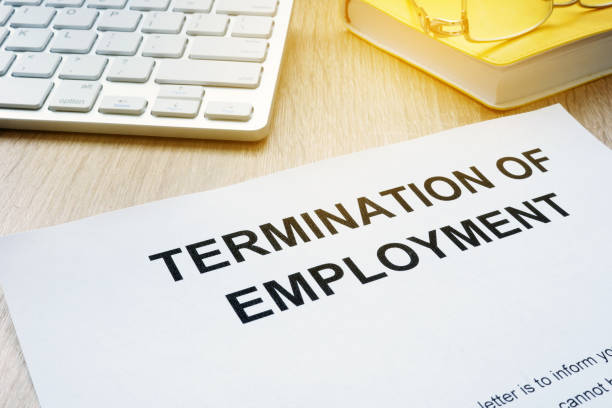Termination of employment occurs when a business, organisation or individual has dismissed an employee who has been working for them. This can be tricky both for the employer and the employee.
Not all termination is wrongful termination of employment. In this article we go over some key points in relation to termination of employment. We will also look into what it means when an employer has wrongfully terminated his/her employee. This is an important topic to consider when looking into matters that fall under employment law.
Reasons for Termination of Employment
There can be many reasons why an employer may find termination of employment to be necessary. There are some reasons that are valid. They must be able to justify the termination and explain why it is necessary. They also give a notice period to allow workers to come to terms with this sudden transition in their lives. Given below are a few of the reasons why employers may consider this.
- Capacity: It may reflect the employee’s capability to satisfy the requirements of the role. If a party is not able to keep up with the demands of the job, employers may ask them to leave the role. This is to prevent any negative affects on the company’s efficiency and capacity to reach targets and goals.
- Genuine Redundancy: This can happen if the employer feels that a particular role does not need to be filled anymore, or if he/she himself has become bankrupt or insolvent. In such cases, they have to provide redundancy pay,
- Misconduct: A company may choose termination of employment if an employee has engaged in behaviour that goes against company policy, or terms of the agreement. Moreover, even unlawful conduct may warrant termination.
What Is Wrongful Termination of Employment?
Unfair/ wrongful dismissal is related to instances when an employer dismisses an employee in an unfair, unreasonable manner, and often on harsh, unjust or unreasonable grounds. It is important to note that the Fair Work Act offers protection if you have suffered from unfair dismissal or wrongful termination.
The Fair Work Act protects employees if they have been away from work temporarily, or if they have suffered from discrimination. The General Protections provisions under the Fair Work Act (2009) protects employees from unlawful dismissal.
Moreover, unlawful termination occurs if a company dismisses an employee on the following grounds:
- race, colour, sexual orientation, gender, mental or physical disability, marital status, religion, political opinion etc.
- exercising a workplace right by making a query or inquiry in relation to employment
- participating in activities against the employer
- being absent from work during paternity or maternity leave
- temporary absence from work due to illness or injury
Unlawful termination provisions protect those subjected to unlawful termination who may not be entitled to make a general protection dismissal application. Those who can apply under General Protections Provisions of the Fair Work Act should not apply for unlawful termination or unfair dismissal application.

Steps to Take Against Wrongful Termination of Employment – Unfair Dismissal Claims
A former employee can make unfair dismissal claims with the Fair Work Commission. The Fair Work Commission will consider the following points to determine if the employee suffered from unfair dismissal.
- Was there a valid reason for the termination?
- Did the employee know the reason, and did their boss give them an opportunity to respond?
- Did employers inform them that their performance is not satisfactory?
- Any other matters that are relevant according to the Fair Work Commission
Ideally, an employee must lodge an unfair dismissal claim with the Fair Work Commission within 21 days of the unfair dismissal taking effect. It is important to note that you must be employed for a minimum of 6 months before you can apply for such a claim, i.e. there is a minimum employment period that is applicable.
If you are working for a small business, you must be employed for minimum of 12 months if you wish to make this claim. A small business is one where there are less than 15 people employed.
Importantly, you must engage a lawyer to aid you with these procedures and processes. It is stressful enough to deal with unlawful dismissal or wrongful termination. Lawyers provide much needed support to parties who wish to make claims. Some workers may wish to organise a support person.
Case Study Example
In the case of Morcos v Serco Australia Pty Ltd (2019) FWC 7675, it was found that Mr Morcos had been unfairly dismissed. He was called into work on his rostered day off, before which he had consumed two bottles of beer.
Because he received a last-minute call on his day off, he did not technically have drinks before his shift. However, there was a random alcohol test at work and his readings indicated a blood alcohol concentration of 0.037 and 0.032. He was sent home following this.
The FWC found that Mr Morcos’ misconduct was not sufficient enough to necessitate termination of his employment. Moreover, the FWC found in his favour that he had consumed a reasonable amount of alcohol on his rostered day off as he was of the opinion that he’d not be required to work after consuming those beers.

Employment Lawyers Sydney For Legal Action
Our employment lawyers at JB Solicitors have the experience of working with both employers and employees who have been subjected to unfair treatment.
Some businesses, individuals (terminated employee) or companies may have to fight against unlawful and false claims and allegations from former employees. Sometimes an employee resigns and makes false allegations against his/her former employer’s conduct.
There are many serious issues that may arise within this context such as workplace fraud, bullying, fraudulent employment contract, discrimination and wage theft. It is important to understand your workplace rights
For more enquiries, contact our team of lawyers today.
